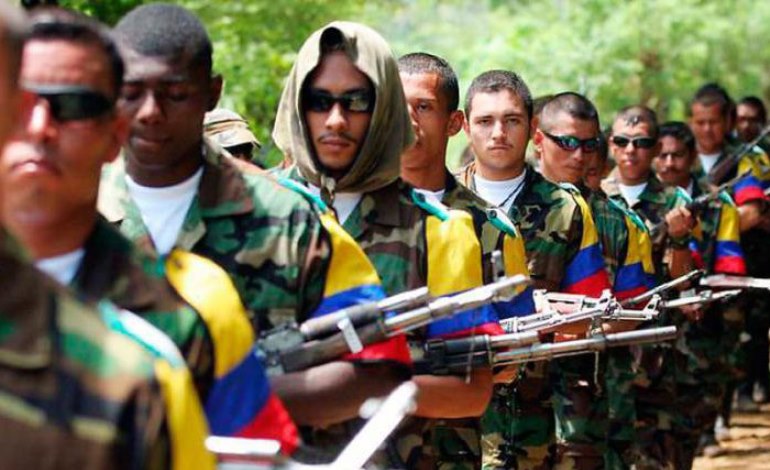
Historically, the country next door has been one of the most important military allies in this region for the United States, if not the most important. It is fitting then to ask what role Bogotá will be called on to play in the offensive the U.S. is preparing in order to disband terrorism and narcotics trafficking in the area. This also directly relates to disabling Nicolas Maduro’s autocratic regime.
The history of Colombia has much to teach us on this matter. Throughout the first and second decades of this century, Presidents Bill Clinton and George W. Bush included as a regional military priority the detailed monitoring of activities linked to terrorism and drugs in Colombia. This is because it is the perception in the north that both issues affect regional security. The U.S. is particularly concerned about how these distortions threaten it directly.
Beginning in 1998, former Colombian President Andres Pastrana promoted a peace agreement with the Revolutionary Armed Forces of Colombia, also known as FARC, which demilitarized El Caguan, a region the size of Switzerland. Washington anticipated what would happen in that zone, a traditional sanctuary for FARC. The guerrillas used the freedom to strengthen their firepower and their control by force of the rural population, and meanwhile, became powerful in the parallel drug business. The U.S., for its part, discretely but efficiently beefed up the Colombian armed forces in other areas of the country, thanks to governmental cooperation agreements.
Since then, the U.S. military presence in Colombia has been constant. Regarding the New Granada territory,* there has been talk of approximately seven military bases and multiple quasi-bases. According to the press, in 2012 the U.S. Air Force owned 51 buildings outright and leased another 24 properties from which it supported the governments in office. The military offensive orchestrated by Alvaro Uribe under his Democratic Security policy was supported in collaboration with U.S. and Israeli military intelligence.
By the time peace negotiations were underway between insurgents and the government of Juan Manuel Santos between 2012 and 2016, it was already clear that a third element was driving such criminal and destabilizing activities in the region: the Venezuelan revolutionary government. Its presence in Havana’s prenegotiation planning was decisive in the signing of the peace accords, even if no one openly acknowledged it. What happened afterward demanded major American vigilance in Colombia. It was not just FARC that continued its usual activities through a new branch created by internal disagreements. The National Liberation Army also used the Santos period to bolster its territorial presence in Venezuela, assisted by agents from the Bolivarian Revolution, which turned them into a violent armed core with undeniable interests in the drug trade and in the exploitation and sale of Venezuelan gold.
Since September 2019, the return to arms by the Colombian terrorists, who had announced their disagreement with FARC with great fanfare, added reinforcement to American watchfulness , ongoing since time immemorial, over the actions of armed insurgents.
And so we arrive at the present moment. The military scrutiny that the U.S. has maintained over the Colombian-Venezuelan axis has allowed it to gain an in-depth understanding of the binational reality, to manage inside information and to provide the straw man it has just erected to justify the blockade of Venezuela.
For the time being, while the current American president has publicly announced a strategic offensive against Maduro’s autocratic government and authorized an unprecedented mobilization of U.S. Armed Forces in the Caribbean, it is time to ask how or whether Colombia will contribute to these military initiatives within the region.
In order to join the U.S. military cause, Colombia requires authorization from its congress. Its hands are tied in that area, but that has not stopped it from supporting the consistent American proposal to allow a democratic solution for Venezuela involving all political forces.
In the event that military action escalates, will Bogota contribute? It honestly doesn’t matter. Its part of the job is already done. It is because of the interaction and collaboration with all past Colombian governments that the American prosecutor has been able to begin exerting decisive influence ejecting of the current dictator in Venezuela.
*Translator’s note: New Granada was the name of the territory made up mostly of what is now known as Colombia until 1858.

Leave a Reply
You must be logged in to post a comment.